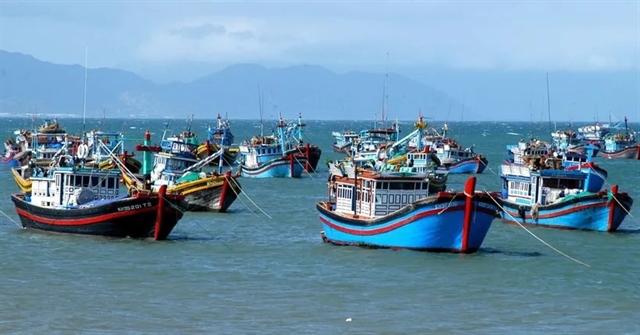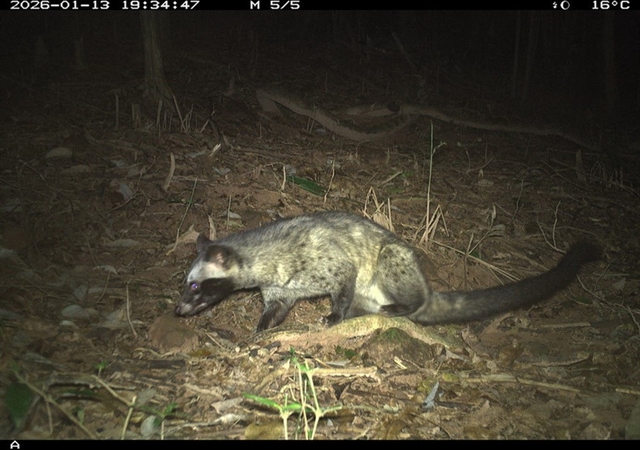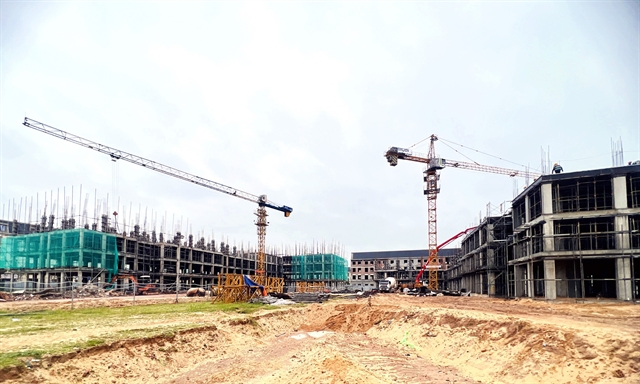 Economy
Economy
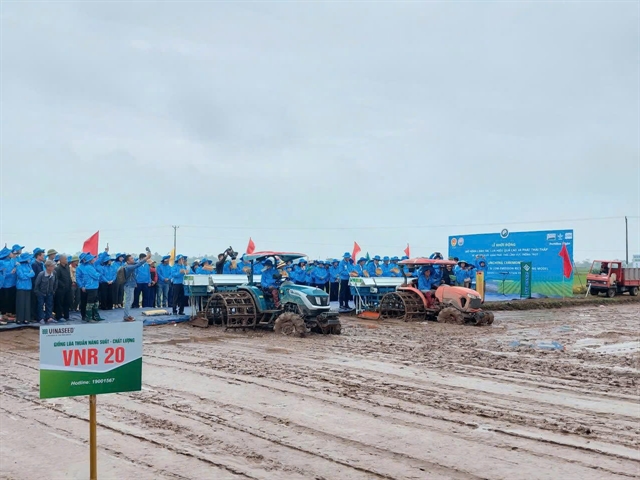
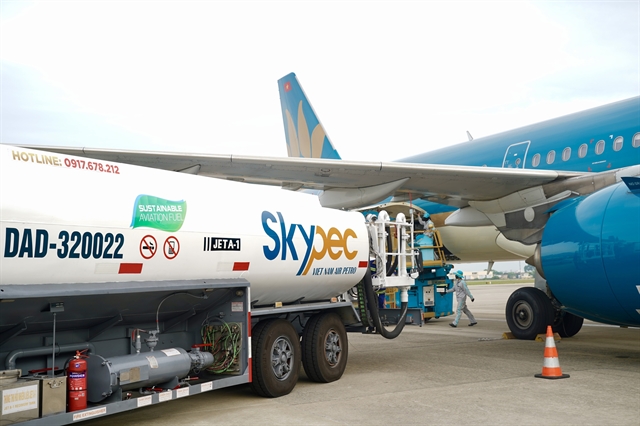
|
| A fuel tanker carrying sustainable aviation fuel (SAF) refuels an aircraft for a domestic flight on June 5 this year. — Photo nld.com.vn |
HÀ NỘI — Việt Nam will participate in CORSIA, the programme for offsetting and reducing carbon emissions in international aviation, starting from January 1 next year.
The Civil Aviation Authority of Vietnam (CAAV) has recently requested the Ministry of Construction to inform the International Civil Aviation Organisation (ICAO) about Việt Nam’s participation in CORSIA from January 1 next year, in accordance with ICAO guidelines.
This move follows the conclusion of Deputy Prime Minister Trần Hồng Hà regarding the European Union’s (EU) sustainable aviation fuel development policy and reflects the country's commitment to mitigating the aviation industry's impact on climate change.
Recently, the CAAV has actively implemented CORSIA’s requirements, such as issuing circulars on managing fuel consumption and CO2 emissions from civil aviation, conducting monitoring, reporting, and verification (MRV) of CO2 emissions for international flights from 2019 to 2024, and submitting data to ICAO.
Additionally, the CAAV has proactively studied global and regional policies, especially those from the EU, on sustainable development and has worked with relevant ministries to address challenges and propose solutions to the Government.
CORSIA is a mechanism approved by the ICAO Assembly in 2016 in Canada, aiming to achieve carbon-neutral international aviation through market-based solutions.
The voluntary phase applies to countries from 2021 to 2026, before transitioning to the mandatory phase from 2027 to 2035.
According to ICAO’s timeline, participating countries in the voluntary phase must notify ICAO by June 30 of the preceding year.
Việt Nam’s participation in the programme marks an important step towards deeper integration into global efforts to combat climate change in the aviation sector.
Preliminary calculations show that Việt Nam's national aviation sector will spend at least US$5.6 million and up to $37.5 million next year to purchase carbon credits for its participation in the voluntary phase starting January 1 next year. — VNS



